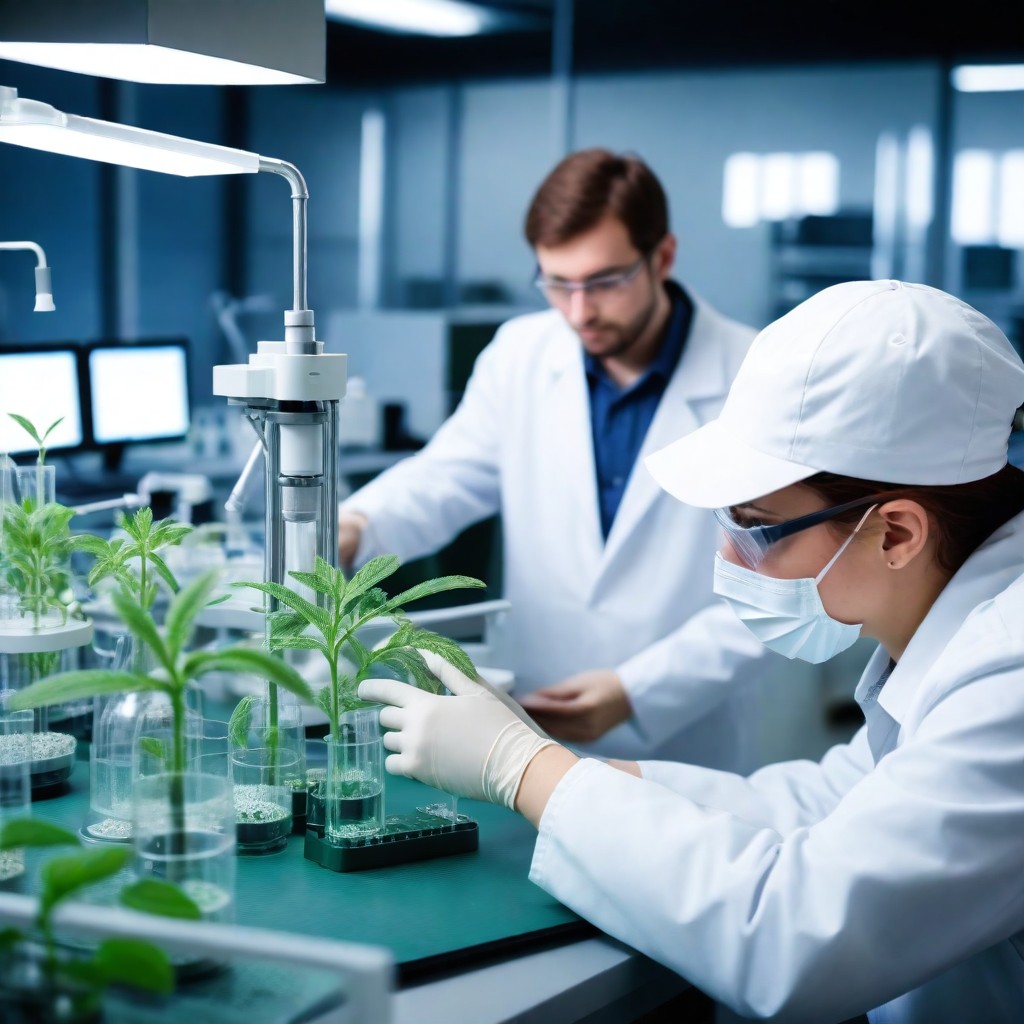
The Industry Linked Biotechnology Research Scheme (IBRS) fosters innovation by bridging the gap between academia and industry in India. Learn about eligibility, funding, and how IBRS propels biotech advancement.
The Indian biotechnology sector is a burgeoning field brimming with potential. To translate groundbreaking research into real-world applications, the Industry Linked Biotechnology Research Scheme (IBRS) plays a crucial role. This initiative acts as a catalyst, fostering collaborations between academic institutions and industry partners. By providing financial assistance and promoting teamwork, IBRS propels innovation and expedites the commercialization of biotechnological solutions.
What is the Industry Linked Biotechnology Research Scheme (IBRS)?
IBRS is a funding initiative implemented by various government agencies, such as the Kerala State Council for Science, Technology and Environment (KSCSTE), aimed at fostering academia-industry partnerships in the field of biotechnology research. The scheme serves as a matchmaking service, connecting brilliant ideas from academic institutions with the resources and expertise of industry partners to bring these innovations to life.
How does the IBRS work?

The IBRS operates by providing financial support to collaborative research projects between academic institutions and industry partners. These projects are designed to address specific challenges or develop innovative solutions within the biotechnology sector.
The scheme typically covers a range of research areas, including but not limited to:
- Bioenergy and biofuels
- Environmental biotechnology
- Agricultural biotechnology
- Healthcare and pharmaceutical biotechnology
- Industrial biotechnology
Through the IBRS, academic researchers can access funding, resources, and industry expertise to advance their research, while industry partners can leverage the cutting-edge knowledge and capabilities of academic institutions to drive innovation and commercialization.
Understanding IBRS: Objectives and Benefits
The primary objective of IBRS is to bridge the chasm between theoretical research and practical application. By encouraging academia and industry to work together, IBRS aims to:
- Drive Innovation: The scheme fosters a collaborative environment where academic expertise meets industry know-how, leading to the development of novel products, processes, and services in the biotechnology sector.
- Facilitate Commercialization: Research with a clear commercialization goal takes center stage in IBRS projects. This ensures that valuable research findings are translated into marketable solutions with tangible societal benefits.
- Strengthen Industry-Academia Linkages: By working hand-in-hand, academic institutions gain valuable insights into industry needs and challenges. Conversely, industry partners benefit from cutting-edge research and a talent pool of skilled scientists.
Eligibility and Funding Structure
The IBRS program offers financial support to eligible applicants undertaking research projects with commercialization potential. Here’s a breakdown of eligibility and funding:
- Eligible Applicants: Scientists and technologists affiliated with research and development centers, academic institutions, or organizations actively engaged in biotechnology research, particularly in areas like marine biotechnology, agriculture, health, and environment.
- Project Proposals: Proposals must be submitted in collaboration with an industry partner willing to contribute financially towards the project. The industry share typically constitutes 25% of the total project cost.
- Funding Pattern: IBRS offers a maximum grant of ₹40 lakhs (approximately $50,000 USD) for a period of three years. This excludes overhead costs and the industry’s share. Additionally, the host institution can receive an overhead grant capped at ₹2 lakhs (approximately $2,500 USD).
How to Apply for IBRS Grants
The application process for IBRS grants typically involves the following steps:
- Stay Updated: Regularly check the websites of organizations like the Department of Biotechnology (DBT) or relevant state-level science and technology councils for announcements regarding IBRS calls for proposals.
- Review Guidelines: Carefully review the program guidelines to understand eligibility criteria, project focus areas, and application procedures.
- Develop a Strong Proposal: Collaborate with your chosen industry partner and craft a compelling proposal that clearly outlines your research objectives, methodology, commercialization plan, and budget breakdown.
- Submit Application: Ensure you submit your application within the stipulated deadline and adhere to all formatting and submission requirements.
- Contact Details:
The Scientist-in-charge
Kerala Bio-Technology Commission
Kerala State Council for Science, Technology and Environment (KSCSTE),
Sasthra Bhavan, Pattom, Thiruvananthapuram – 695 004
Telephone: (0471) 2548254, 2548406
E-mail: kbc.kscste@kerala.gov.in
Documents Required
- Passport size photographs
- Identity proof of applicant
- Technical report/proposal
- Educational certificates
- Disability certificate (If applicable)
- Endorsement from the Collaborating Industry
- Endorsement from the Head of Institution
- Any other document, if required
Success Stories and Impact
The IBRS program has demonstrably accelerated advancements in various areas of biotechnology in India. Here are some examples:
- Development of novel biofertilizers that enhance crop yields and promote sustainable agricultural practices.
- Creation of bioremediation techniques for tackling environmental pollution.
- Innovation in bio-based materials with potential applications in diverse sectors.
These success stories highlight the program’s effectiveness in bridging the gap between fundamental research and practical applications, ultimately contributing to India’s position as a global leader in biotechnology.
FAQs about IBRS
Q: Who can apply for IBRS grants?
A: Scientists and technologists affiliated with research institutions or academic establishments actively involved in relevant areas of biotechnology research can apply, provided they collaborate with an industry partner.
Q: What are the focus areas for IBRS projects?
A: The program prioritizes research with commercialization potential in fields like marine biotechnology, agriculture, health, and the environment.
Q: How much funding can be received under IBRS?
A: The maximum grant for a three-year project is ₹40 lakhs, excluding overhead costs and the industry’s share.
The Road Ahead: IBRS Fostering a Culture of Innovation
The Industry Linked Biotechnology Research Scheme (IBRS) plays a crucial role in propelling India’s biotechnology sector to the forefront of global innovation. By fostering a culture of collaboration and providing financial support, IBRS empowers researchers and industry partners to translate promising ideas into tangible solutions. Here’s a glimpse into the program’s potential for the future:
- Enhancing Industry Participation: Encouraging a larger pool of industry partners to participate in IBRS projects can diversify research areas and accelerate the development of commercially viable products. This could involve creating incentives and streamlining collaboration models.
- Promoting Interdisciplinary Research: The program’s scope could be expanded to encourage interdisciplinary research collaborations. For instance, integrating engineering principles with biotechnology research can lead to the creation of novel tools and technologies for biotechnological applications.
- Building a Robust Innovation Ecosystem: IBRS can be a cornerstone for building a robust innovation ecosystem in India’s biotechnology sector. This could involve fostering stronger linkages between research institutions, industry partners, and venture capitalists to support the translation of research findings into successful startups.
Conclusion
The Industry Linked Biotechnology Research Scheme serves as a powerful bridge between academia and industry, accelerating advancements in India’s biotechnology sector. By nurturing a collaborative environment, providing financial resources, and fostering a culture of innovation, IBRS paves the way for the development of groundbreaking solutions that address societal challenges and propel India’s position as a global leader in biotechnology.

